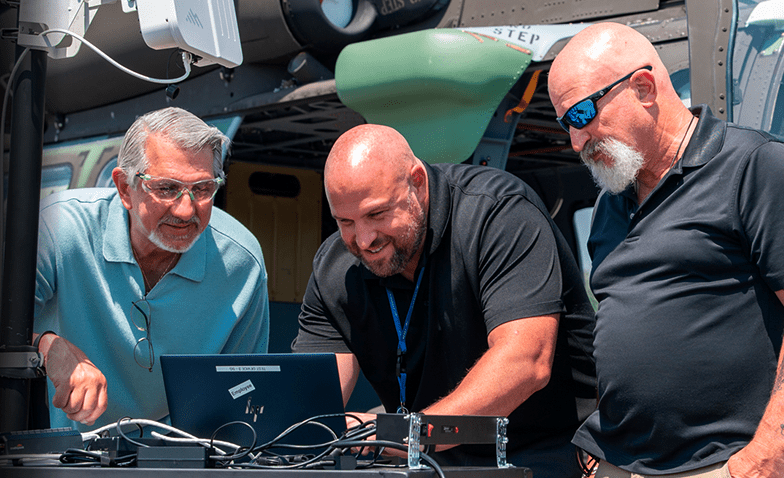
Lockheed Martin and AT&T have completed the secure and rapid transmission of UH-60M Black Hawk health and usage data through an AT&T 5G private cellular network and Lockheed Martin’s 5G.MIL multi-site pilot network.
The test, conducted at Lockheed Martin’s Sikorsky headquarters in Connecticut, is said to have demonstrated that wireless 5G technologies on the flight line can support accelerated maintenance operations and improved aircraft readiness.
According to the companies, it also proved highly secure interoperability between the AT&T millimeter wave 5G private cellular network and the 5G.MIL pilot network.
“These 5G capabilities deployed at scale are expected to enable high-speed, secure-data transfer on virtually any flight line, providing another example of how we’re advancing our 21st Century Security vision by improving customer readiness and operations,” said Dan Rice, vice president of 5G.MIL Programs at Lockheed Martin. “In collaboration with commercial 5G leaders, an interoperable 5G.MIL multi-site, multi-vendor network is another step closer to reality.”
The AT&T 5G millimeter wave private cellular network wirelessly transferred data to the 5G.MIL network through ground support equipment from the Black Hawk’s Integrated Vehicle Health Management System (IVHMS). The data was then routed to local Sikorsky networks for processing and distribution through the secure Lockheed Martin 5G.MIL pilot network to the Waterton, Colorado, 5G test range site.
According to Lockheed Martin, it currently takes Black Hawk crews about 30 minutes to remove the IVHMS data cartridge from the helicopter, transport it to an operations center and extract the data for analysis. Lockheed Martin used AT&T 5G private cellular technologies to reduce the time required to less than 5 minutes including cartridge removal, demonstrating the potential benefits in time and cost for military and commercial helicopter operations.
The IVHMS provides monitoring and diagnostic capabilities to ensure a more reliable aircraft. It monitors, captures and evaluates detailed aircraft-generated data as a result of flight maneuvers. It also captures aircraft limit exceedances on airframe and dynamic components and monitors temperature and vibration of key components on the aircraft. It does this through hundreds of on-board sensors that report the status of the aircraft by monitoring the airframe, engines, and other dynamic components. Operators assess these thousands of data points to ensure the aircraft is safe, reliable and ready to fly.
“Timely and secure transfer and analysis of mission and operations data are critical to military readiness and effectiveness,” said Lance Spencer, client executive vice president, Defense, AT&T Public Sector and FirstNet. “This is one of many areas of commercial 5G innovation we are exploring to support defense, commercial aviation, and related fields where our 5G-related services can modernize legacy processes and help deliver truly transformational benefits.”
Lockheed Martin and AT&T also are working with other leading companies in networking and defense to modernize and transform communications capabilities for defense purposes. Future demonstrations are expected to further enhance 5G wireless technology communications solutions for flight lines, aiming to continually shorten aircraft turnaround times to reduce costs and improve military operational readiness. These capabilities deployed at scale can support high-speed, secure-data transfer on both commercial and military flight lines.












